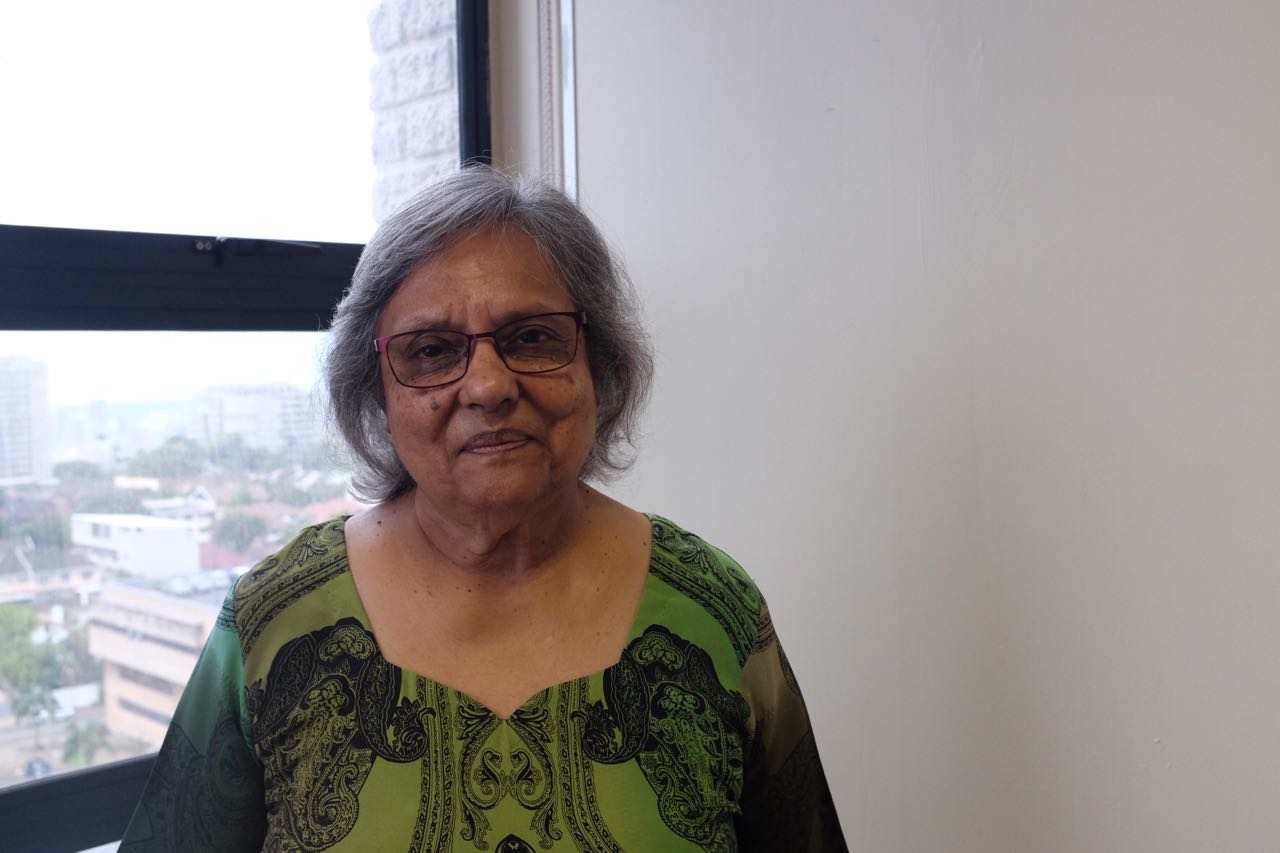MAIN IMAGE: Portrait of Ela Gandhi taken by SIT student Serena Hawkey.
“He read the Quran, the Bible, all the scriptures so he could learn. These scriptures made him realize that there is something more to life. It’s about being more responsible, about the fact that everyone deserves to enjoy social justice,” Ela Gandhi reflects.
The man she refers to is her grandfather, Mahatma Gandhi, one of the most well-known historical figures around the globe. Known for his peaceful approach to conflict resolution, he showed mankind a new and nonviolent approach to political movements.
He was also an inspiration for his family, many of whom who have followed in his footsteps. Ela Gandhi has taken on political activism in her own life, previously serving as an ANC member of Parliament in the first democratic government and currently serving as a chairperson of the Gandhi Development Trust.
Speaking to a group of SIT students this week she said,“Contrary to what a lot of people believe —that he didn’t have a close relationship with his family — he was a very warm family member. He wrote letters to me up until the day he was assassinated — a seven-year-old. He felt it was important.”
Though Gandhi is widely known for his leadership in the fight for Indian independence from the British, he also had an influential impact in South Africa. He lived in the country for 21 years and had some of his first encounters with racism in Durban.
In 1893, Gandhi arrived in Durban to work as legal counsel for an Indian business firm. On a train ride from Durban to Pretoria, he was asked to move to a third-class car as Indian people were not allowed in first-class carriages. Gandhi had purchased a first-class ticket and refused. At the Pietermaritzburg station he was forcibly removed from the train.
Later on, while Gandhi was visiting a courthouse in Durban, he was asked by the local magistrate to remove his turban. Gandhi refused and walked out of the courtroom.
These events, along with growing legislative discrimination against non-white communities in the country, fuelled Gandhi’s involvement in South African social liberation movements. It also motivated the entire Gandhi family to speak for marginalised people.
Ela Gandhi, who is a social worker by training, was banned and subjected to house arrest for nine years by the Apartheid government. She remains passionate about the fight against inequality and non-violence.
Read more about Ela Gandhi and her work here Ela Gandhi Bio




